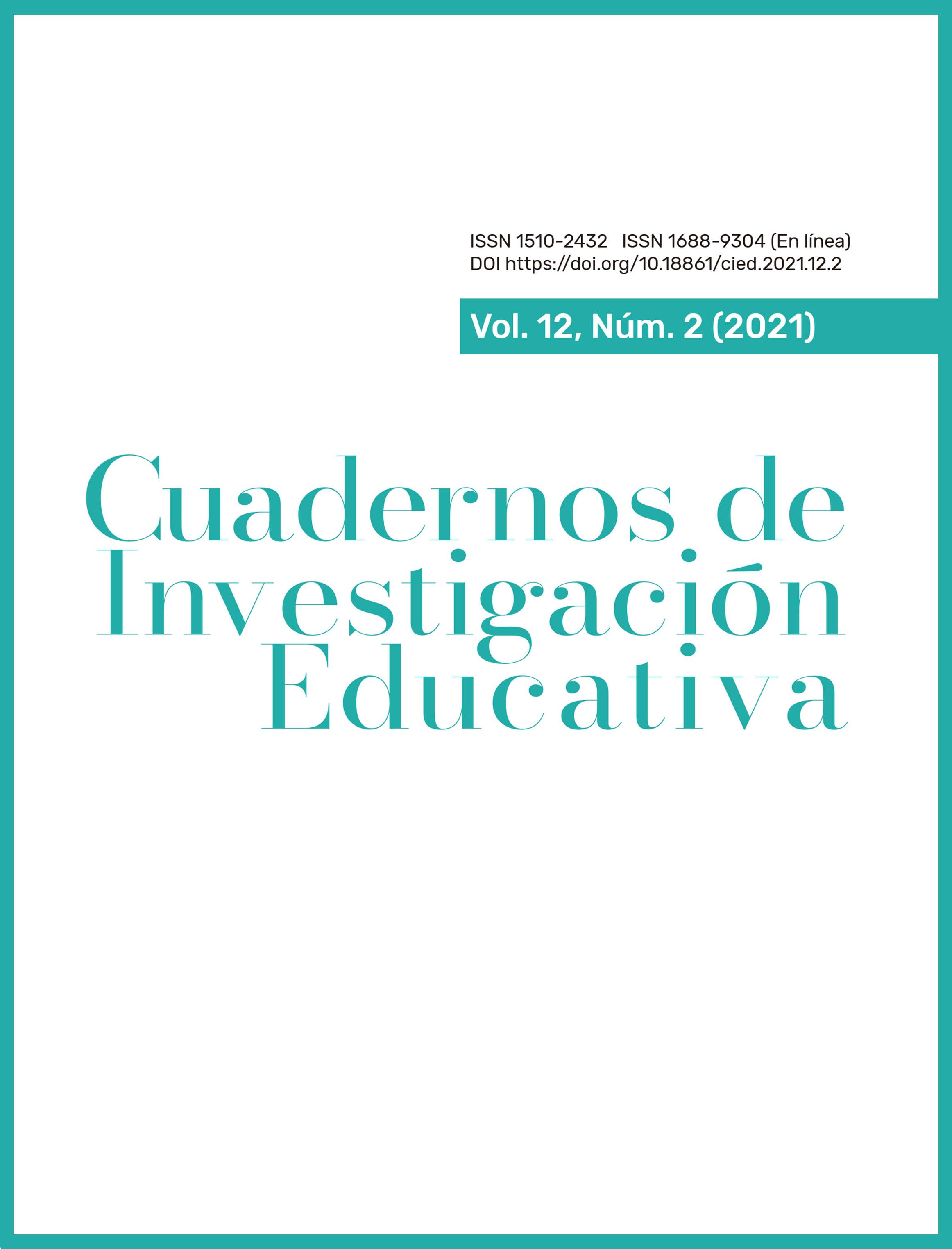Executors, implementers or curricular agents?
Teacher profiles in relation to the curriculum
DOI:
https://doi.org/10.18861/cied.2021.12.2.3048Keywords:
teacher, curriculum, secondary school teaching, social sciences, planningAbstract
This report includes some of the findings of a research carried out in the framework of the Master's Degree in Education at ORT University of Uruguay, where the relationship between teacher and curriculum was studied. The issue under analysis consisted in studying the way in which secondary education teachers of the subject Social and Civic Education, act as mediators of a curriculum conceived within a curricular system. The article is focused on one of the objectives of the research consisting in identifying the teachers' profiles based on the curricular decisions made by those teachers that participated in the study. A qualitative approach was used within the hermeneutic phenomenological interactive modality. The main technique for information gathering was the semi-structured interview applied to a theoretical sampling of 10 teachers of Social and Civic Education from state high schools in Montevideo city (applied through three different stages of their teaching career) and one teachers supervisor for such specific subject appointed by the Secondary Education Council of Uruguay. The research was complemented with a qualitative textual analysis of eleven annual plans and five re-planning documents written by teachers selected in the sample. As regards the teachers participating in the study, the results allowed to identify mostly the executor and implementer profiles. No teachers with a profile of mere curricular agents were detected. The research evidenced that it is in the collaborative work and with the incorporation of digital technologies where teachers take distance from the curricular-agent profile. A finding to be pointed out is the deepening of the executor profile in collective actions such as teachers' meetings and coordination activities.
Downloads
References
Corbetta, P. (2007). Metodología y técnicas de investigación social. McGraw Hill. https://diversidadlocal.files.wordpress.com/2012/09/metodologc3ada-y-tc3a9cnicas-de-investigacic3b3n-social-piergiorgio-corbetta.pdf
De Alba, A. (1994). Currículum: crisis, mito y perspectivas. Buenos Aires, Argentina: Miño y Dávila Editores.
Díaz Barriga, A. (1995). Docente y programa. Lo institucional y lo didáctico. Aique Grupo Editor.
Di Pizzo, R. (2019). Profesores y desarrollo curricular. Decisiones, determinaciones y percepciones de los docentes de educación social y cívica sobre el curriculum [Tesis de Maestría, Universidad ORT Uruguay]. https://bibliotecas.ort.edu.uy/bibid/89845
Fernández, M. (2004). El desarrollo docente en los escenarios del currículum y la organización. Revista de currículum y formación del profesorado, 8(1), 1-20. https://www.ugr.es/~recfpro/rev81COL3.pdf
Gimeno Sacristán, J. (1991). El currículum: una reflexión sobre la práctica. Ediciones Morata.
González, M. (1986). El papel del profesor en los procesos de cambio. Revista interuniversitaria de didáctica, 4(4-5), 9-30. https://dialnet.unirioja.es/servlet/articulo?codigo=95627
Grundy, S. (1998). Producto o praxis del curriculum. Ediciones Morata.
Hernández Sampieri, R., Fernánez Collado, C., & Baptista Lucio, P. (2014). Metodología de la Investigación Social. McGraw Hill.
Huberman, M. (1990). Las fases de la profesión docente. Ensayo de descripción y previsión. Curriculum, (2), 139-159. http://www.quadernsdigitals.net/index.php?accionMenu=hemeroteca.VisualizaArticuloIU.visualiza&articulo_id=2638
Kemmis, S. (1998). El curriculum: más allá de la teoría de la reproducción. Ediciones Morata.
Marcelo, C. (1999). Formación del profesorado para el cambio educativo. Ediciones Universitarias de Barcelona.
Marrero, J. (2013). El currículum que es interpretado. ¿Qué enseñan los centros y los profesores y profesoras? En Gimeno Sacristán. (Comp.), Saberes e incertidumbres sobre el currículum, 221-245. Ediciones Morata.
Mejía Navarrete, J. (2000). El muestreo en la investigación cualitativa. Investigaciones Sociales, 4(5), 165-180.
Monarca, H, y Fernández-González, N. (2016). El papel de la inspección educativa en los procesos de cambio. Cuadernos de Pesquisa, 46 (159), 212-233. http://dx.doi.org/10.1590/198053143374
Opertti, R. (2013). Visión del currículo y debates curriculares: una perspectiva interregional. https://es.calameo.com/read/0042763553edd458d094b
Stenhouse, L. (1998). Investigación y desarrollo del curriculum. Ediciones Morata.
Tejada, J. (1998). Los agentes de innovación en los centros educativos. Profesores, directivos y asesores. Aljibe.
Terigi, F. (2012). La cuestión curricular en la educación secundaria. En E. Tenti Fanfani (Coord.), La escolarización de los adolescentes: desafíos culturales, pedagógicos y de política educativa, 55-75. IIPE-UNESCO.
Zabalza, M. (2009). Diseño y desarrollo curricular. Narcea.






